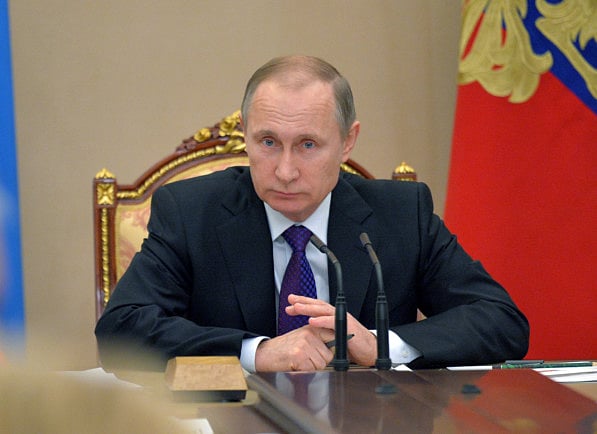‘The new world order: New rules or no rules?”, asked Russian President Vladimir Putin at his annual Valdai discussion club. It does not take much debate to work out that “no rules” is not an attractive idea. A society without rules would mean Thomas Hobbes’ war of all against all.
International rules are violated from time to time, but that does not make them less vital. In Europe, the rules governing relations between East and West are the 1975 Helsinki accords. The period that followed the agreement was, by historical standards, one of relative stability. Twenty-five years after the Cold War’s end, the situation is more precarious. Russia’s seizure of Crimea and intervention in eastern Ukraine bring uncertainty and insecurity.
So how to restore security and cooperation in Europe? A panel of political leaders and diplomats, asked this question by the Organisation for Security and Cooperation in Europe (OSCE), reached the conclusion that we do not need new rules. We need to create a context where the existing rules can work.
In 1975, stability came from an understanding about the territorial status quo. The West opposed Soviet domination of eastern Europe, but did not attempt to change it by force. This status quo was ratified in the Helsinki accords, but it had been built up, piece by piece, under the name of Ostpolitik. The two sides in the Cold War were able, slowly, to reach other agreements, including on military confidence-building.
No one wants a return to the Cold War, but a return to jointly-managed stability would be good for all. The starting point has to be an understanding about territory. A contested zone runs through Ukraine, Moldova and Georgia. Worse, we lack clarity on the intentions and wishes of all of the main actors. Is Nato still planning to offer membership to Ukraine and Georgia? If Russia thinks in terms of a sphere of influence, what exactly does that mean? What of the wishes of Ukrainians and Georgians? Where do the European Union (EU) and the Moscow-led Eurasian Economic Union fit in?
These questions are central to European security. Uncertainty increases the chances of a miscalculation; clarity would make possible confidence-building measures, redesigned for an age of technology rather than mass armies.
We need a return to diplomacy. Implementation of the Minsk protocol, a ceasefire agreement between Russia and Ukraine, would provide a background against which to launch a bid for stability in Europe. The OSCE chair should begin a diplomatic process on behalf of Europe, in its widest definition, to answer these questions. If Finland was able to spur the Helsinki agreement at the height of the Cold War, there is no reason why a similar initiative cannot be tried today.
The ultimate objective should be a summit to reaffirm not just the principles of common security in the Euro-Atlantic area, but also agreements to allow its implementation. Meanwhile, we can make today’s situation less dangerous by agreeing to rules among Europe’s military forces to avoid accidents. This is urgent, as Turkey’s shooting down last year of a Russian aircraft shows.
It would be agreeable to live in a world of common values, where the kind of cooperation that exists in the EU could be reproduced across Europe. That does not look likely for the moment, but the differences are smaller than those between opposing ideologies in 1975. What remains is the same common interest in avoiding direct military confrontation. To solve problems without force, agreed rules are essential.
European countries have a long shared history and they have solved their cross-continental problems before. The 1975 accords opened the way to a period of trade, investment and cooperation. This is what European countries need now. Then they can tackle the challenges they face beyond the continent — together.
— Financial Times
Wolfgang Ischinger is the head of the Munich Security Conference. He chaired the Panel of Eminent Persons on European security.
Sign up for the Daily Briefing
Get the latest news and updates straight to your inbox
Network Links
GN StoreDownload our app
© Al Nisr Publishing LLC 2026. All rights reserved.
